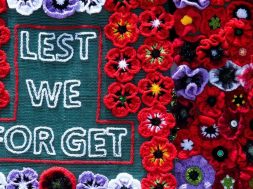
When Friendships Go Wrong For Girls
By: Collett Smart
When I worked as a school psychologist, for more than 10 years, some of the most common lunch time chats I had in my office were with one girl or a group of girls. Inevitably, because something had ‘gone wrong’ in their relationships. This resulted in some tears, sometimes heartache, often internal wrestling or questioning.
Girlhood relationships are so important, yet they can be both wonderful and awful in the same week. This seems to really ‘ramp up’ for a period, in the tween and early teen years. Friendship fallouts hurt, but children need to know that arguing doesn’t have to be the end of the friendship. Developmentally, some squabbling is vital because it helps us learn respectful conflict resolution.
What can we do, when friendships go wrong for girls?
1. Handling disagreements
When inevitable conflict arises, girls can often get caught in a ‘rumination loop’ – they replay the scene over in their minds, like a sad song stuck on repeat, which makes things feel catastrophic. Because your daughter’s brain is still learning how to interpret some responses, and she may be misinterpreting a friend’s words or signals, ask her to look for evidence to support her interpretation. There are certainly times when she might be oversensitive. Whether she finds evidence or not, if she still believes something is wrong, suggest your daughter talk to her friend privately and in person – without an audience. In a manner that is assertive rather than aggressive. Help her plan or role play beforehand, so that she understands what assertiveness looks and feels like.
Help her start with ‘I’ words, which encourage girls to own their feelings. She could say,
‘I felt let down when…’ or ‘I was disappointed when…’
If your daughter realises that she also caused pain, help her think of ways to say,
‘I’m sorry. Can we fix this?’
And of course, the best thing we can do is model apologies at home.
2. Stay out of it
Nothing brings out the mama-bear more than a parent knowing their child is in emotional pain. However, unless there is clear bullying going on, (where you might need to try different strategies) it is better to stay out of the conflict yourself. It is very unwise to confront the other girl yourself. Also, avoid calling up the other party’s parent when you feel frustrated. So often, the girls get over their conflict and are BFFs again by Friday, while the adults are left nursing hurts and regrets for things said.
There are certainly times when parents decide to chat together, about helping their girls work through conflict in healthy ways. For example, one way to avoid the ‘audience’ might be to drive your daughter across to her friend’s house, where they can talk in private. You could agree to sit in the car or chit-chat with the other parent, while the girls work through their issue alone.
3. Shifting friendships
Although painful, not all relationships are meant to continue forever. As girls grow they shift from being little ones, reliant on parents, to becoming more independent. Their tastes and interests change. They want to explore the possibilities of new groups and activities. This often leads to hurt when one girl is not ready for a shift.
Parents might also normalise that changes in friendships are a part of growing up (although never an excuse for meanness). Rather than simply dismissing your daughters’ feelings as silly, acknowledge the hurt and gently reassure her. There are many new, interesting people she will meet throughout her life.
If your daughter chooses to move groups or change BFFs, talk with her about kindness and avoiding complete exclusion of others. Ask her to think about how she might feel if she were in the other person’s place and what she might do to deal with others sensitively.
Toxic ‘friendships’ and bullying
Most girls will experience the pain of interacting with a toxic ‘friend’ during their school years. This type of interaction often involves ‘relational aggression’ and serves to damage a person’s sense of social place. E.g. a girl appears to be friendly but uses passive-aggressive strategies – gossip, belittling, exclusion online, on the bus, from parties or seating arrangements. This can be very confusing, and leads to feelings of shame and loneliness.
When not given healthy ways to express their pain, girls can often internalise their emotions in unhealthy ways like; self-harm, anxiety, eating disorders, self- loathing etc.
Allow your girls to express their hurt
Adults need to be a safe place for girls to process pain, vent or cry when they are hurting. Adults may not be able to change the toxic person’s behaviour at the time, but shouldn’t underestimate the power of listening and being available. Try not to assume you know what your daughter needs. A good phrase to use is,
“What do you need from me to feel supported in this situation?”
If it becomes clear to you that there is bullying, it is time to chat with the school, coach or youth leader. Girls will often beg their parents not to ‘tell’. But your daughter’s mental health and self-worth are eroded by bullying. Doing ‘nothing’ is not an option. Gently reassure her and include her in strategies – but make changes.
Bullying. NO WAY!, includes the national definition of bullying:
Bullying is an ongoing and deliberate misuse of power in relationships through repeated verbal, physical and/or social behaviour that intends to cause physical, social and/or psychological harm. It can involve an individual or a group misusing their power, or perceived power, over one or more persons who feel unable to stop it from happening.
Bullying can happen in person or online, via various digital platforms and devices and it can be obvious (overt) or hidden (covert). Bullying behaviour is repeated, or has the potential to be repeated, over time (for example, through sharing of digital records).
Bullying of any form or for any reason can have immediate, medium and long-term effects on those involved, including bystanders. Single incidents and conflict or fights between equals, whether in person or online, are not defined as bullying.
Expand her village
I often remind parents and teens that adults’ closest friends are not usually work colleagues. You daughter doesn’t have to be super close with school friends. It can help to think of peers at school, like work colleagues. As long as they are not completely alone or isolated at school, this can be freeing for some girls.
Ensure your daughter has friends in a few settings – a neighbour, a team mate, a family friend, a band member, someone at youth group… They can provide a different connection and help girls realise they are not alone. Girls often find their tribe, when they belong to other organisations outside of school.
One last thought on growth opportunities
Help girls to think about what they value in friendship. Brainstorm by using sentence starters like,
‘A good friend is a person who …’
Encouraging girls to develop skills for dealing with friendships, provides them with something they will use throughout life. Explicitly teaching your daughter to think about what compassion, kindness and empathy look like in a friend, helps her recognise what it means to be a good friend herself.
Article supplied with thanks to Raising Teenagers
About the Author: Collett Smart is a psychologist, qualified teacher, speaker and internationally published author. She lives with her husband and 3 children in Sydney, Australia. The heart of Collett’s work is to support and bring Hope to parents of tweens and teens.













